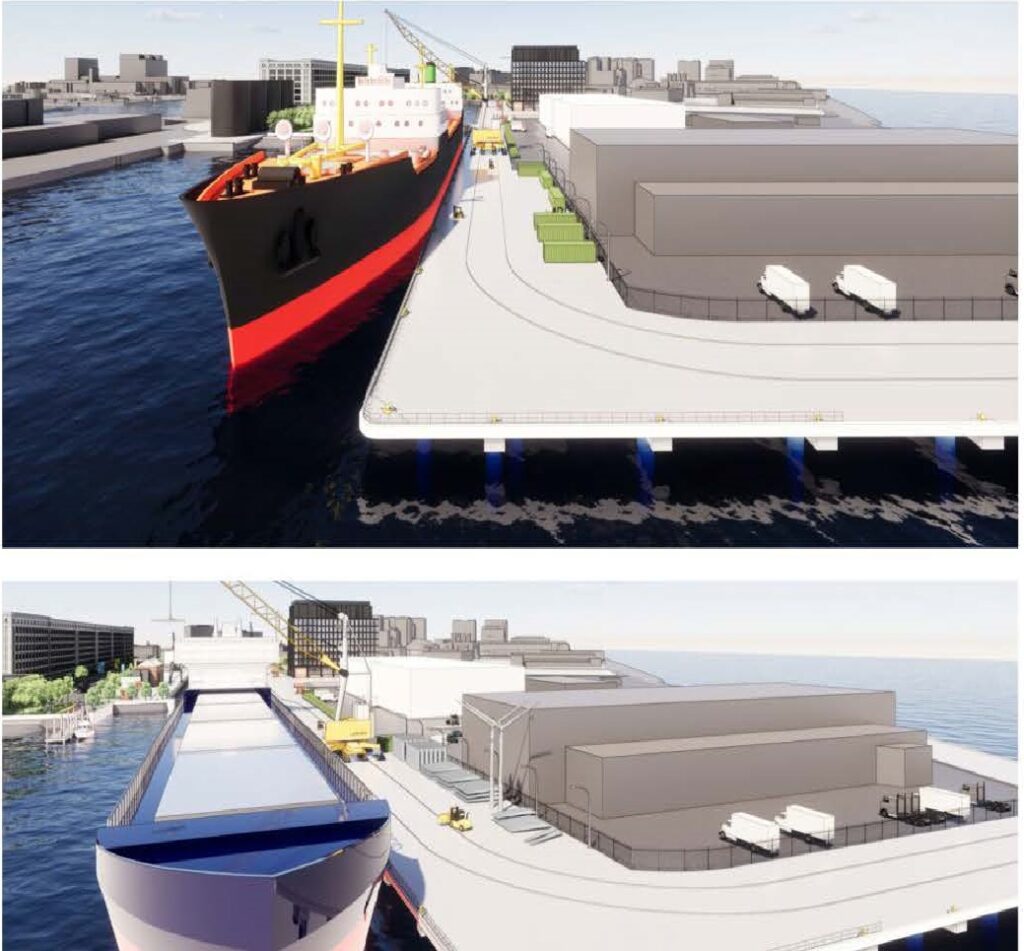

The South Jetty public wharf, located in the Raymond L. Flynn Marine Park (RLFMP), is an underdeveloped marine terminal, prime for modernization. The Economic Development and Industrial Corporation of Boston (EDIC) is sponsoring the reconstruction of the South Jetty berth.
The revitalized South Jetty will be used as a non-container cargo hub with shore-to-ship powering capabilities, which will support the growing freight needs of the Boston area while also reducing carbon emissions. We foresee emissions reductions by both the transition of freight movement from road to port, and through the reduction in ship engine use resulting from shore powering infrastructure for berthed ships. Co-benefits of the South Jetty modernization include a reduction in current maintenance costs, reduced traffic noise and air pollution through modal switching of freight transport and provision of an electrified shore-to-ship service area, and a pathway for further revitalization of the under-utilized RLFMP. By enhancing cargo capacity and pier space, and providing clean power, the project will attract businesses and activities that contribute to a sustainable future, while also supporting and growing the capacity of neighboring industries and national security needs, such as the adjacent ship repair operations at Boston Ship Repair. This project will complete the final component of transforming the Port of Boston into a modernized full-service port.
The Project is part of an ongoing strategy outlined in the 2022 Raymond L. Flynn Marine Park Master Plan Update published by the Boston Planning & Development Agency (BPDA).The primary aims of the Master Plan are to revitalize and modernize marine infrastructure to support marine industrial uses, to improve mobility and connectivity of the RLFMP to the greater South Boston region while reducing traffic congestion, and to develop resilient infrastructure in the face of a rapidly changing climate.
Additionally, the RLFMP is unique in that it is a public port facility. It has a mission to serve as a reserve for industrial businesses and Boston-based jobs, which is bolstered by state regulations that require the majority of uses be marine industrial in nature. It is also an area with underutilized land and aging infrastructure, which is faced with new demands related to the rapid development in South Boston, as well as new opportunities stemming from the quickly emerging blue tech and marine-based clean energy markets. The Project will transform this decaying infrastructure from an unused and deteriorating safety hazard into a functional, safe, and efficient cargo terminal that contributes to the economic growth and decarbonization of the South Boston area. The completed South Jetty will also provide a safe full-service berthing, which is currently unavailable in the Port of Boston, reducing the need for non-container cargo to come into distant ports and then enter Boston via truck.